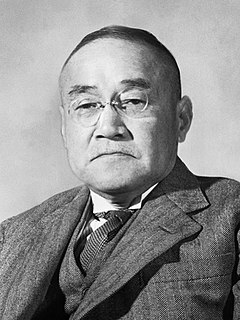A Quote by Noam Chomsky
Take Germany and Japan, both defeated in the Second World War. Germany has acknowledged its monstrous crimes to a certain extent, has paid reparations and so on. Japan, in contrast, apologizes for nothing and has paid no reparations, with one exception: It pays reparations to the United States, but not to Asia.
Related Quotes
We've got to stand up at some point and say, 'We are not gonna pay slavery reparations in the United States Congress.' That war's been fought. That was over a century ago. That debt was paid for in blood, and it was paid for in the blood of a lot of Yankees, especially. And there's no reparations for the blood that paid for the sin of slavery.
Reparations, I believe, are talked about for political reasons, trying to cater for the purpose of getting votes. If Congress was serious about reparations - in '93 and '94 the Democrats controlled the House, the Senate and the White House, and not one single Republican vote was needed for reparations.
The mere fact that you belong to a certain ethnic group makes you eternally guilty, according to the twisted logic of Zionism. If Germans who were not even born before 1945 must pay reparations to the State of Israel, which did not exist until 1948, then you can be included in the Zionist racket of reparations and revenge.
I serve on the Institute of the Black World's National Commission on African-American Reparations, and we have asked the President [Barack Obama] to, by executive order, establish a commission to study reparations. He can do this without Congressional approval. While I am not optimistic, I do hope that President Obama considers this in these waning months of his Presidency.
I want to write the reparations joke that makes people go, 'Yay! I'm so happy!' It's easy to go onstage and just make fun of all the 'isms' instead, but we can't all be Jeff Dunham. Although that pays very well... it pays way better to be Jeff Dunham than it ever paid to be George Carlin or Lenny Bruce.
I was in the U.K. and Germany and went to Volkswagen and learned about their apprenticeship model - young people become paid apprentices in trades. It's not a coincidence that youth unemployment is far lower in Germany than the United States because there are paid opportunities for young people to get experience.
Look at Germany where 20 percent of the labor force is in manufacturing compared to about 8 percent in the United States. Germany pays a lot more conscious attention at the level of the federal government to attracting and keeping manufacturers in Germany. So this is something that other countries do that the United States has not historically done.






































